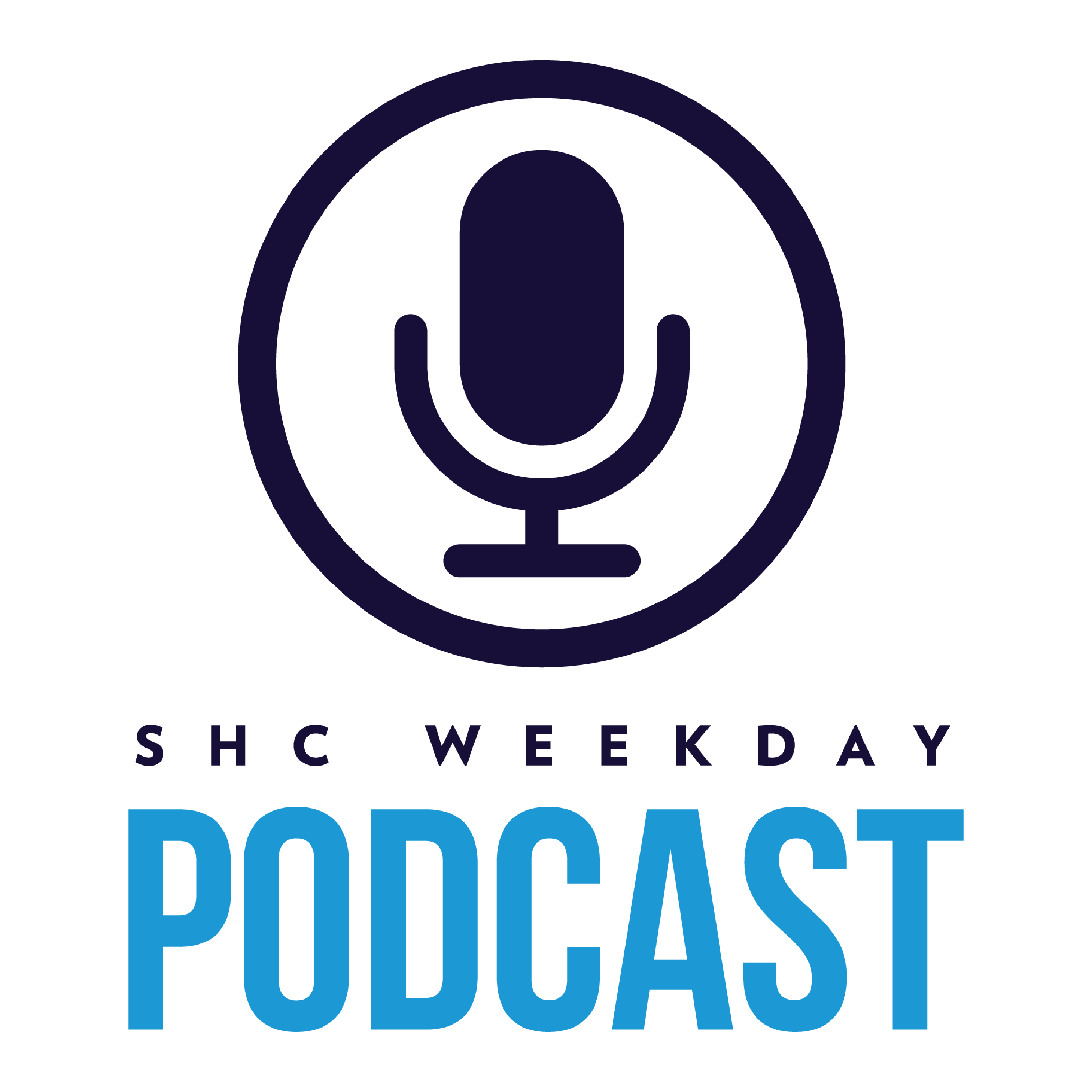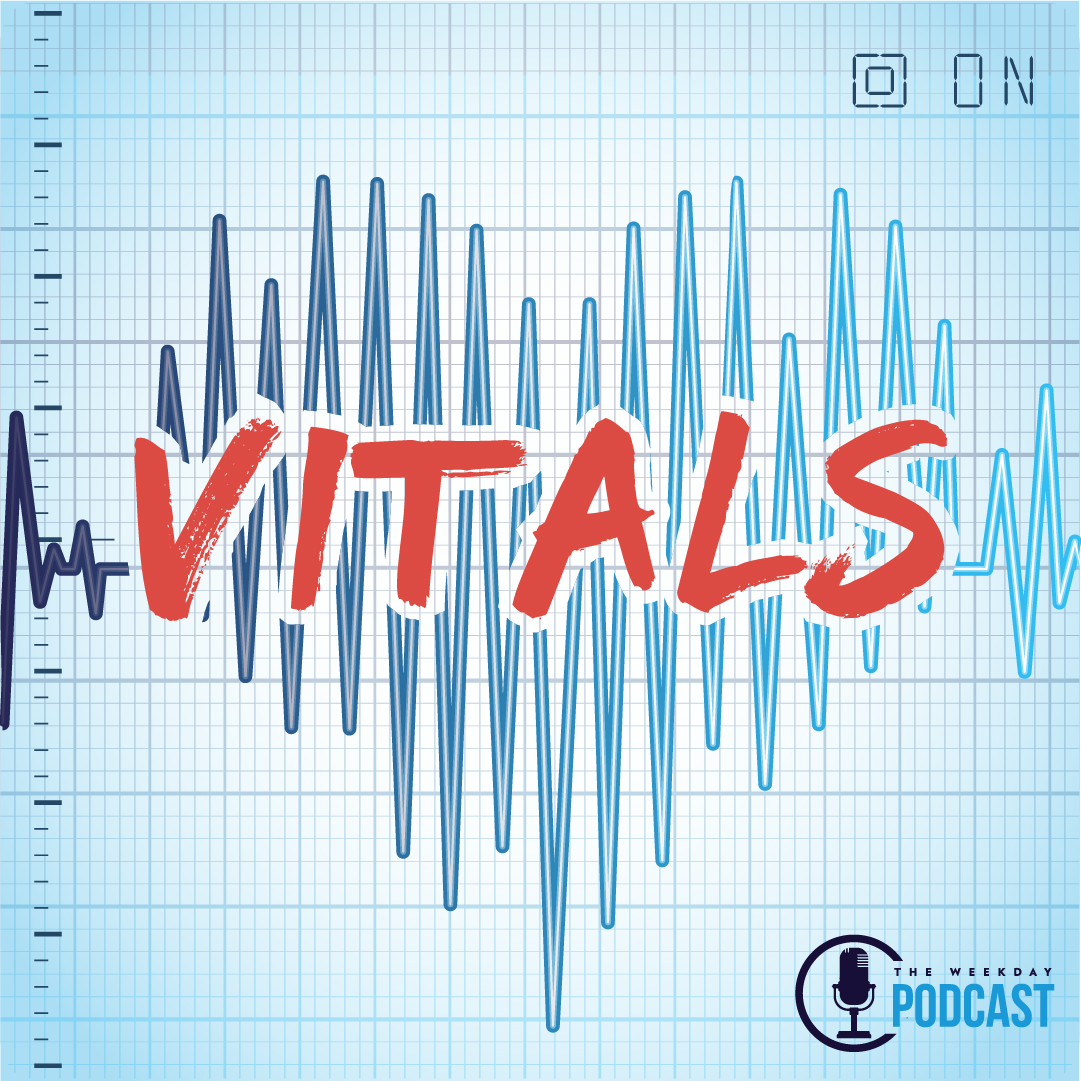Episode Transcript
[00:00:01] Hi, everybody. I'm Pastor Chuck Allen. I want to welcome you to the weekday podcast. Thanks for joining me. Today we're going to talk a little bit about forgiveness, about how forgiveness happens inside of you and reconciliation happens between you and someone else. Is there a distinction there? You betcha. And it changes everything.
[00:00:21] Sometimes we mix two sounds and we think they're all the same. You clap and you say something. You say something and clap fast enough, and it sounds like the same thing, and we collapse them all together, but they're not the same thing. That's what we do with forgiveness and reconciliation. Today we're going to talk about that on the weekday podcast.
[00:00:48] Where were we? Yeah. Forgiveness happens inside of you. Reconciliation occurs between you and. And another person. And this distinction, it changes everything. In Romans, chapter 12, verse 18, Paul writes something fascinating. He says, do all that you can to live in peace with everyone. Now, notice he doesn't say, make sure you have perfect relationships with everyone. He doesn't say, ensure everyone likes you and treats you well. He doesn't say, y'all go be besties. He says, do all that you can. Now, there's a recognition here that sometimes the other person may not be willing or even able to do their part. They might not apologize. They might not change their behavior. They might not even acknowledge the harm they've caused. And that's where we get stuck, isn't it? We think, how can I forgive if they haven't apologized? How can I forgive if they're still doing the harmful thing? But what if forgiveness isn't about them at all? What if. What if it's about you? What if forgiveness is the decision to stop drinking the poison of bitterness, hoping that the other person will die from it? Back in 2008, a study that was discovered out of the Journal of Behavioral Medicine found that forgiveness, even without reconciliation, was associated with lower levels of cortisol, the stress hormone linked to heart disease, diabetes, and weakened immune function. Now think about that. You can experience the healing benefits of forgiveness, even if reconciliation never happens. When Jesus was dying on the cross, he said, father, forgive them, for they don't know what they're doing. Now, let me ask you this. Did the people who crucified him apologize? Nope. Did they make amends? Not even close. Did they even acknowledge what they'd done? Nope. But Jesus forgave. That's our model, y'all. Not because what they did was okay, not because that they deserved it, but because forgiveness breaks the cycle. It refuses to let hatred and bitterness have the last word, either with Jesus or because of him in you. And here's what's fascinating. Jesus didn't say, I forgive you. He said, father, forgive them.
[00:03:00] Sometimes the hurt is so deep, sometimes the wound is so profound that we need divine help to forgive. We need to recognize that true forgiveness often exceeds our human capacity. It says in Ephesians 4. 31, get rid of all bitterness, rage, anger, harsh words and slander, as well as all types of evil behavior. Instead, be kind to each other, tenderhearted, forgiving one another, just as God, through Christ, has forgiven you. We forgive because we've been forgiven. We access a power beyond ourselves. Now, I want to be super clear about something. Forgiveness doesn't mean you have to reconcile with the person who hurt you. It doesn't mean you have to trust them again. In some cases, reconciliation may not be safe. It may not be wise. It might not even be possible. And I want you to hear me say this, and that's okay. You can forgive someone and still maintain healthy boundaries. You can forgive someone and still seek justice. You can forgive someone and still choose not to have them harm your life or give it away.
[00:04:09] A study from Stanford University has studied forgiveness extensively. And one of the key findings is that forgiveness allows us to tell our stories differently. Instead of being defined by victimhood, we become survivors. Instead of our stories ending with hurt, our stories continue into healing. Forgiveness isn't about erasing the past. It's about creating space for a better, brighter, newer future. It's not about pretending that the hurt didn't happen. It's about preventing that hurt from determining what happens next. In 2nd Corinthians 5, Paul writes this. In verse 18, he says, and all of this is a gift from God, who brought us back to himself through Christ. And God has. Has given us this task of reconciling people to himself. The Bible's big story is about reconciliation, about bringing things back together that have been torn apart. When we practice forgiveness, and the key word here is practice, we're participating in this bigger story. We're doing the work of bringing healing to a broken world. But sometimes reconciliation with the person who hurts us isn't part of our particular story. And that's okay. I want to say it loud and again. So here's my question for you today. If there's someone that you need to forgive, is there a hurt you've been carrying that's weighing you down? And what would it look like to begin the process of forgiveness, not to excuse what happened, but to free yourself from its ongoing power over you? Can you acknowledge that you might be able to do one without the other. Forgiveness is a gift you give yourself. Please remember that reconciliation is a process that may or may not follow. This is Chuck Allen, and you're listening to the Weekday podcast. Until tomorrow, I trust and pray that you'll find the freedom that comes through forgiveness. God bless you, friends. Have a great day.


